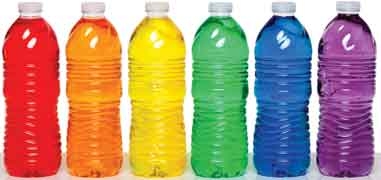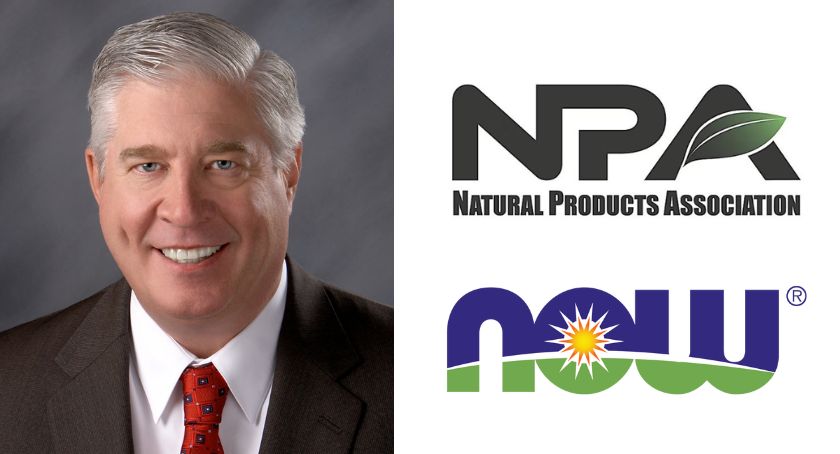Features
Functional Beverage Market Update
Companies are working hard to get innovations flowing again as growth in a lot of categories slows to a trickle.
By: Rebecca Wright

While not as robust as previous years, recent growth in functional beverages has been respectable. Packaged Facts, New York, NY, estimates that aggregate retail sales of the functional beverage market—including energy drinks, sports drinks and functional waters; ready-to-drink tea and coffee; and yogurt drinks and smoothies—approached $23.4 billion in 2010, up from almost $19 billion in 2006, for a compound annual growth rate (CAGR) of 5.5%, the intervening recession notwithstanding. Areas of activity include energy drinks, coconut water and ready-to-drink (RTD) tea.
Pockets of Opportunity
The functional beverage market continues to be fueled by the power of energy drinks, a sector currently posting a little more than $7 billion in sales, according to Claire Moulin, departmental research analyst, Euromonitor International, Chicago, IL. “It has the highest growth potential and the most acceptance,” she said. “In addition, it continues to attract new consumers, most recently the older generations who are looking to replace coffee with something more appealing.”
By the same token, the RTD tea market is poised for some serious growth in the U.S., according to U.K.-based New Nutrition Business (NNB). “The $1.8 billion RTD tea business has become an important area of opportunity in the U.S. Tea brands have connected to the health trend by improving their nutritional profile significantly in recent years.”
Specifically, NNB believes refrigerated teas—worth more than $440 million—is the most exciting segment. “With a 9% annual growth rate, it’s propelling the growth of the whole market.” Overall growth of U.S. RTD tea sales in 2011 was 4%, according to Beverage Digest.
But tea is not an easy market and is not without its pitfalls, NNB said, as both Campbell’s and Pom Wonderful have learned. “Extensions of otherwise very successful brands into tea have failed for both these companies,” NNB claims.
Perhaps the answer is blending tea with other types of beverages, such as juices or even alcohol. Brands such as Trop50 are having some early success marrying tea with juice. Trop50 combines exotic juices like lychee with white and green tea. A similar trend is occurring in the coconut water segment.
Coconut water is moving from being the main attraction in beverages to more of a supporting role. Exploiting its utility as a functional ingredient will only expand the market further. “U.S. coconut water sales doubled in 2011, and will reach an estimated $110 million in sales this year, “ NNB said. “And, according to market research, the demand is likely to continue.”
Other interesting areas include oat-based beverages for a myriad of benefits (e.g., satiety, heart health, etc.), natural energy drinks, aloe and chia. “Natural energy is the direction some of the major companies are headed,” said Tom Vierhile, innovation insights director, Datamonitor, Canandaigua, NY. He pointed to Celestial Seasoning’s Kombucha Energy Shots and V8 V-Fusion+Energy drinks as examples of this trend.
According to Ms. Moulin, “natural” and “reduced calorie”/”reduced sugar” go hand in hand, with stevia the star ingredient in a lot of beverage launches. In terms of positioning, she said many beverage companies have backed off of strong claims, opting instead for quieter health and wellness messages given recent FDA/FTC involvement in the category and resulting consumer skepticism.
Still, Mr. Vierhile says companies continue to pursue various health platforms such as cardiovascular support, eye health and relaxation.
Future Growth Prospects
As for some of the other functional beverage opportunities that have the potential to go mainstream, Datamonitor’s Mr. Vierhile said, “Aloe is starting to get some real traction. It has always been highly regarded in Asian specialty stores but Americans haven’t really known what to do with it (from an ingestible standpoint). Recently launched Aloe Gloe is the first attempt to Americanize it. Given the buzz surrounding it, aloe seems to be where coconut water was four years ago.”
Mr. Vierhile also singled out chia beverages. “Chia has been active in food and supplements for several years, but now it is really catching on in beverages,” he said. “The only issue is supply. Currently there is a severe shortage, which will take time to remedy. This could impact the potential of the market short-term.”
Other interesting innovations relate to fruits and vegetables. “I could see companies really start to exploit fruit and veggie servings in beverages,” he commented. “This is already happening to some degree with children’s beverages.” In the U.K., he said there is a lot of focus on 5-a-day servings of fruits and vegetables, along with a handful of products that feature floating fruit pieces. The latter, he said, has a lot of potential because of the perception that it is more natural, closer to freshly made. It could also trickle into the functional beverage market as a trend. Lastly, he said, drinks as snacks present a lot of possibilities.
The good news is future growth for functional beverages looks a lot better than it has for the last several years. “The functional/fortified beverage category is estimated to grow 18% between 2011 and 2016,” said Euromonitor’s Ms. Moulin.
What’s New?
(The following is a snapshot of product activity in the functional beverage sector during the last year. Sources of information included press releases, company websites, news articles and Datamonitor Product Launch Analytics.)
Looking to pack its pipeline with more protein, Coca-Cola, Atlanta, GA, signed a distribution agreement with Core Power in June to deliver its high-protein workout-recovery shake for athletes and fitness buffs to a handful of states starting in July. According to the Wall Street Journal, the move coincides with a heightened marketing push by Coke’s chief beverage rival, PepsiCo Inc., which sells different versions of its Gatorade sports drink for before, during and after workouts.
On the fresh juice front, Coke’s Odwalla subsidiary introduced new line of 150-calorie (per 12 fl. oz. bottle) Smoothie Refreshers late last year. Available in Mango Lime Twist, Mixed Berry Shuffle and Pear Berry Jive flavors, they are positioned to complement any meal. Odwalla Smoothie Refreshers provide 100% of the daily value of vitamin C and are formulated with coconut water.
Odwalla also introduced Super Protein Mango smoothie, which contains 20 grams of soy protein per 12-oz. bottle. The smoothie also contains 50% of the Daily Value (DV) of calcium and 150% of the DV of vitamins B12 and B6. Other key ingredients include apple juice, mango puree, orange juice and banana puree.
BYB Brands, Inc. Charlotte, NC, a wholly-owned subsidiary of Coca-Cola Bottling Co. Consolidated, recently added three new flavors—Vegan, Horchata and Coconut—to its Bean & Body Coffee brand. Bean & Body Coffee contains antioxidants (ORAC certified) to boost the immune system and protect the body from free radicals, according to the company. Offered in an 8-oz. can, each flavor is 100 calories or less, all-natural, gluten-free, Kosher certified and contains two times the antioxidant level of green tea.
PepsiCo, Purchase, NY, is finding other ways to infuse its beverage portfolio with teas using its Tropicana brand. Its Trop50 brand now features varieties such as Peach with White Tea, Raspberry with Green Tea and Pear Lychee with White Tea. With 35-45 calories in each 8-oz. glass, they provide a full day’s supply of vitamin C and a good source of vitamin E.
PepsiCo’s Naked Juice division has been relatively quiet during the last year, launching only one new product. Its new Mango Veggie smoothie adds up to two servings of vegetables and one serving of fruit, and includes vitamins A, C, E, B3, B5, B6 and B12. It is also a good source of potassium.
Bakersfield, CA-based Bolthouse Farms, has added a fruit juice, smoothies and coffee blend to its beverage line-up. Orange + Carrot Blend offers 300% more vitamin A than traditional orange juice, according to the company. It also unveiled Protein Plus Blended Coffee, which contains 30 grams of protein and five B vitamins per 15-oz. serving. The company is also offering two new breakfast replacement drinks—Strawberry Parfait Breakfast Smoothie and Peach Parfait Breakfast Smoothie. Each provides 10 grams of protein, 2.5 grams of fiber and 15% of the required DV of calcium.
Starbucks, Seattle, WA, launched a line of natural energy drinks earlier this year called Refreshers. These fruity, carbonated beverages are high in antioxidants and contain unroasted green coffee extract for its energy boost. Flavors include Raspberry Pomegranate, Orange Melon and Strawberry Lemonade.
Starbucks also moved into the fresh juice arena recently with its acquisition of Evolution Fresh, a maker of healthy, natural fruit and vegetable juices. The company plans to expand the brand across the U.S.—initially—as well as open a new chain of juice bars. It opened its first Evolution Fresh Juice bar in March.
Speaking of expansion, the company also plans to open a Tazo tea store in Seattle as early as this fall, where it will sell more than 80 varieties of loose-leaf tea and other tea products. Since purchasing Tazo for $8 million in 1999, the company has grown the brand to $1.4 billion in sales, according to Reuters, which said, “Starbucks wants to do for tea what it did for coffee.”
AriZona Beverage Company, Woodbury, NY, has launched its own coconut water drink. Made from 100% pure coconut water from young green Indonesian coconuts comes CocoZona. According to the company, it contains five essential electrolytes—potassium, sodium, magnesium, calcium and phosphorus—to help keep consumers hydrated. It contains coconut water with no added sugar, no preservatives, no artificial colors, no artificial flavors, zero fat and zero cholesterol.
Dr Pepper Snapple Group, has launched a new line of Lightly Sweetened Teas, which are all natural white teas sweetened with just a touch of real sugar. At 80 calories per 16-oz. bottle, the teas are available in two flavors: Peach Passionfruit and Cherry Pomegranate.
Dr Pepper Snapple Group is also the new distributor of Bai, a new beverage line based on coffeefruit. Each bottle is packed with a host of antioxidants. Varieties include Mango Kauai, Tanzania Strawberry, Jamaica Blueberry and Kenya Peach in the regular Bai line, along with Congo Pea, Ipanema Pomegranate, Costa Rica Clementine, Sumatra Dragonfruit, Panama Peach, Brasilia Blueberry and Malawi Mango in the very low calorie line called bai5.
The FRS Company, Foster City, CA, recently announced the launch of two new beverages: Healthy Slim, to support weight loss, and Healthy Defense, for immune support. To recap, FRS uses the super antioxidant quercetin, found naturally in many fruits and vegetables, which has been shown in multiple clinical trials to provide sustained energy, increased endurance and immune system support. FRS Healthy Slim is formulated with fiber, green tea and Slendesta, which are proven to help curb appetite and increase energy, Healthy Slim is available in two low-calorie flavors, Strawberry Melon and Tropical. FRS Healthy Defense is formulated with Epicor and vitamin D to help strengthen the immune system and promote year-round health and wellness. Flavors include Citrus Pomegranate and Pomegranate Blueberry.
PromOat, the oat beta-glucan ingredient from Swedish company Biovelop, has been chosen by Oatworks, Concord, MA, for its new line of oat and fruit smoothies. PromOat, which is naturally derived from Swedish oats using Biovelop’s patented technology, enables the health benefits of oats to be incorporated into the Oatworks smoothies, providing satiety and energy. Oatworks is available in three flavors—Mango & Peach, Pomegranate & Blueberry and Strawberry & Banana.
Celestial Seasonings, Boulder, CO, has launched Kombucha Energy Shots, which are made from live, raw kombucha, with an added proprietary blend of energizing ingredients like caffeine from guarana, B vitamins and ginseng.
Mr. Pink Beverages, Los Angeles, CA, has introduced Mr. Pink Ginseng Drinks, an energy drink aimed to support an active and healthy lifestyle. Mr. Pink Ginseng Drinks contain 100% of the daily value of vitamins B3, B5, B6 and B12, as well as 1000 mg of ginseng.
Rave Juice, New York, NY, has introduced a natural recovery shot, which harnesses the power of 5-HTP as well as essential vitamins, antioxidants and electrolytes to revitalize the mind and body. Rave Juice provides recovery, relief and replenishment for ravers and non-ravers alike. The company claims the feelings of depression and anxiety most people feel after a long night out could be reduced by drinking Rave Juice, which provides the fully recommended dose of 5-HTP, an ingredient that boosts serotonin levels.
The Republic of Tea, Novato, CA, has launched a new Be Active Teas collection. The line consists of five organic green rooibos-based teas: Get Restored, Get Hydrated, Get Limber, Get Burning and Get Active. Each tea in the Be Active Teas collection is blended with organic green rooibos, sourced from Rainforest Alliance Certified farms, which retains more of its antioxidant value due to a flash fermentation process. Each blend is designed with specific results in mind from energy and flexibility, to metabolism, hydration and a speedy recovery from a vigorous workout. The Be Active Teas collection is all-natural, naturally caffeine-free and certified gluten-free.
Looking to exploit the benefits of medicinal mushrooms, Matrix HealthWorks has unveiled NRGmatrix, a medicinal mushroom-based energy drink, which is available online and through select retailers in the U.S. and Europe. The backbone and differentiating element in the NRGmatrix formula is its blend of 100% organic medicinal mushrooms. The superstar of this combination is cordyceps. Other supporting mushrooms include: reishi, antrodia, agaricus blazei, maitake, shiitake and king trumpet. NRGmatrix is a citrus flavored powder that is naturally sweetened with stevia and monkfruit.
Amid the hectic, non-stop lifestyle of today’s hard-working Americans, a beverage that temporarily relaxes and relieves symptoms of stress has emerged. Apex Beverage LLC, of South Hackensack, NJ, has launched Serenity, a non-alcoholic, non-caffeinated, zero-calorie beverage, which comes in an 8.4 fluid oz. can that contains a blend of B vitamins, rose hips, valerian root and melatonin
Eruption USA, Minneapolis, MN, has introduced Eruption Effervescent Energy, a new healthy energy alternative hitting store shelves across the U.S. This natural energy powder supplement can be added to any beverage (e.g., water, juice, iced tea), and comes in Lava Lime and Magmaberry flavors. It features ingredients such as CoQ10, vitamin C and B vitamins.
Kraft Foods, Northfield, IL, has introduced Capri Sun Super V, a new fruit and vegetable juice drink for kids. The new RTD beverage, which comes in the popular Capri Sun pouch, contains a combined serving of fruits and vegetables (3/4 from fruit juice and 1/4 from vegetable juice) and is a good source of fiber.
Yerba mate, the caffeine alternative with the “strength of coffee, the health benefits of tea and the euphoria of chocolate” is now available in a sparkling beverage from Guayaki, Sebastopol, CA. Guayaki Sparkling Yerba Mate beverages are lightly carbonated drinks that promote energy and focus, and are available in cola-flavored Classic Gold, Cranberry Pomegranate and Grapefruit Ginger varieties.
Nature’s Omega, Pittston, PA, a joint venture between Mycell Technologies and Nature’s Way Pure Water Systems, has released Omega Water, a flavored bottled water fortified with 100 mg of omega 3s and six vitamins. The product contains zero calories, is sugar-free and naturally flavored. It is available in Lemon Squeeze, Orange Splash, Fruit Fusion and Berry Breeze varieties.
Aloe LLC, Manhattan Beach, CA, has unveiled Aloe Gloe Natural Aloe Water. It is available in White Grape, Crisp Aloe and Crisp Aloe with Pulp varieties. It is promoted on label as “certified organic” and is claimed to “retain the bioactive components associated with digestive, immune and skin benefits.” This product contains more than 200 biologically active amino acids, vitamins, antioxidants, enzymes and minerals.
Ojo brand Fortified Eye Care Nectar is a new beverage from Insightful Solutions, Merrick, NY. It comes in Mango Blackcurrant, Orange Cranberry and Peach Blueberry varieties. The mango blackcurrant variety is described on label text as a dietary supplement that helps protect and preserve vision. It contains bilberry and lutein.
Looking to take advantage of the growing popularity of chia, Xiomega 3 LLC, Van Nuys, CA, has launched Xiomega 3 Chia Water. The “all natural” beverage comes in Berry and Lemon Lime flavors, with 65 calories per 8 fl. oz. Each is presented in a 16 fl. oz. plastic bottle featuring a label that reads: “Contains omega 3-ALA, which helps the brain and heart. A source of antioxidants, considered to be the new fountain of youth. Fiber content, for a good and healthy metabolism. Contains calcium that helps build bone structure.”
Sneaky Pete’s Beverage LLC, Butler, NJ, has lauched Oatstanding, a new beverage promoted to be heart healthy, low in calories and sodium, high in oat fiber and free from artificial colors. Flavors include Peach Perfection, Apples Away, Mango Mystique, Raspberry Beret and Grape Escape.
Aiming to captialize on the growth in fortified water, Karma Culture, Pittsford, NY, has introduced Karma Wellness Water. It features “KarmaCap technology,” which instantly enables the infusion of fresh, natural vitamins and nutrients into water to transform water into wellness. It is offered in Balance Acai Pomberry, Spirit Passionfruit Green Tea, Mind Orange Mango, Body Raspberry Guava Jackfruit and Vitality Pineapple Coconut varieties.




















